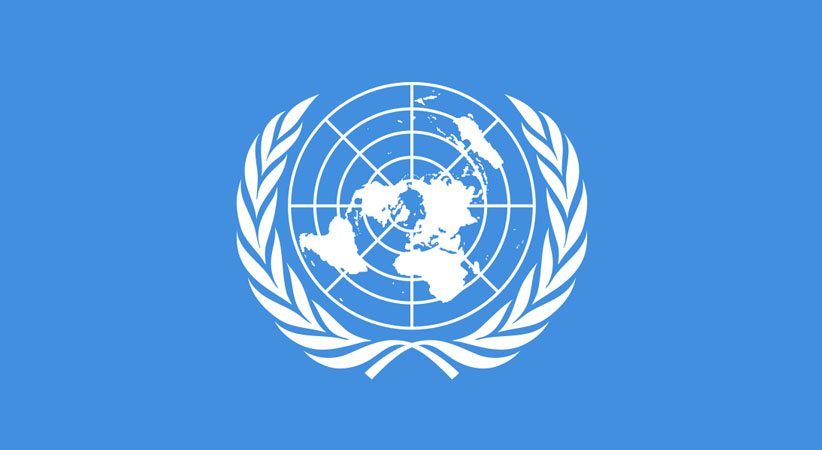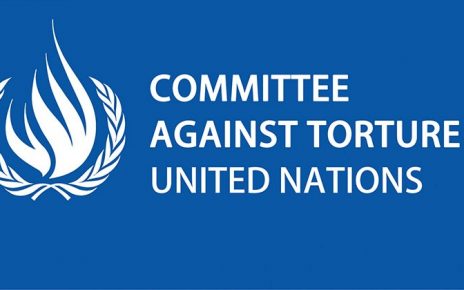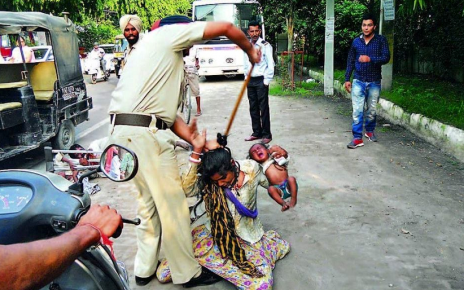UN Committee against Torture considered 885 individual complaints so far
In his statement before the UN General Assembly during the 73rd Session on 15 October 2018, Mr. Jens Modvig, Chairperson of the Committee against Torture stated that 164 State parties have ratified the UNCAT and called upon all other remaining states to become party to the Convention. The Chairperson also informed the General Assembly about the failure of some States parties to respect their reporting obligations.[1]
He also highlighted the effectiveness of the individual communication mechanism established under article 22 of the Convention against Torture. Since 1989 the Committee has registered 885 individual complaints concerning 40 States parties. Among those complaints, 265 were discontinued, 104 were found inadmissible, and final decisions on the merits were issued for 365. Of these 365 cases, the Committee found violations of the Convention violations in 143 (39%) cases. Considering the fact that individual communications submitted to CAT are all about alleged very grave human rights violations, CAT’s findings of a violation rate of 39% is rather modest. As of date, there is a current backlog of 160 individual complaints pending consideration. The Committee recently updated General Comment No. 4 on article 3 of the Convention on the principle of non-refoulement.[2]
Committee against Torture agrees to hear victim of Ireland’s ‘Laundries’
The United Nations Committee Against Torture has agreed to hear a complaint relating to accusations of systematic human rights violations in the industrial school and the Magdalene laundries 30 years ago. The victim, Ms Coppin filed a complaint against physical and emotional abuses she had suffered during the 12 years she had spent in an Irish “industrial school,” one of a now-defunct network of state-funded orphanages and reformatories run by religious orders on behalf of the state. In her complaint she argued that despite having paid roughly $30 million to 696 women who survived the laundries, including $63,000 to her, the Irish state has never admitted its role in supporting the laundries. However, according to an official report published in 2013, thousands of inmates of industrial schools, including Mrs. Coppin, were sent to laundries directly from state care. Those who escaped were often returned by the police.[3]
In 1999, she filed a civil action against the Sisters of Mercy, who ran the industrial school, and two other orders — the Religious Sisters of Charity and the Sisters of the Good Shepherd — who ran two of Ireland’s notorious “Magdalene laundries” where marginalized, unwanted, or “fallen” women and girls lived and worked with little or no pay. Her suit claimed that she had been physically and emotionally abused in the industrial school, then transferred to the laundries without due legal process, having committed no crime. There she had been held against her will and forced to work without pay in deprived conditions. But that case was dismissed by the High Court in Dublin on the grounds that too much time had passed.[4]
After exhausting all conventional criminal and civil remedies, the victim had filed a complaint before the Committee against Torture. The decision of the Committee to hear Ms. Coppin’s complaint is set to be a test case for all survivors of the laundries.
Subcommittee on Prevention of Torture visits Kyrgyzstan
The United Nations Subcommittee on Prevention of Torture (SPT) visited Kyrgyzstan from 12 to 21 September, 2018.[5] The Sub-Committee’s visit was to assess measures taken to protect persons deprived of their liberty against torture and ill-treatment, and look into progress made in implementing the recommendations made following its first visit in 2012.[6]
The UN experts after concluding their second visit to the country welcomed the creation of Kyrgyzstan’s National Center for the Prevention of Torture and other Cruel, Inhuman or Degrading Treatment or Punishment as well as the legislative measures taken by the authorities to prevent torture. However, the rights experts told the Kyrgyz authorities that they must further support the National Center’s work, including by granting it full access to all places of deprivation of liberty in the country.[7]
“Kyrgyzstan has taken steps to improve its machinery for the prevention of torture, but much remains to be done. Conditions of detention, in the different places we visited, are significantly substandard,” said SPT Vice-chairperson Victor Zaharia, who headed the six-member delegation.[8]
The experts visited more than 20 places of deprivation of liberty, including police stations, temporary detention facilities (IVS), pre-trial detention centers (SIZO), correctional detention facilities (colonies) and psychiatric institutions in the regions of Bishkek, Osh and Jalal Abad.
The delegation also held discussions with government entities and officials, including in Osh, and with parliamentarians, the Coordination Council for Human Rights, the Prosecutor General’s Office and civil society representatives. In addition, the experts held working meetings with the National Center for the Prevention of Torture, including a joint visit to a place of detention in Bishkek.
At the end of the visit, the Sub-Committee presented its confidential preliminary oral observations to the government as well as to Kyrgyzstan’s National Center for the Prevention of Torture, which is the country’s National Protective Mechanism (NPM). The SPT’s confidential written reports to both the Kyrgyz authorities and the National Center for the Prevention of Torture will be sent within a six-month period.[9]
UN experts welcome court ruling that Ixil Mayans were victims of genocide and urged the State to prosecute and punish the perpetrators
On 22 October 2018 UN experts, including Mr. Nils Melzer, Special Rapporteur on Torture and Other Cruel, Inhuman or Degrading Treatment or Punishment, welcomed a Guatemalan court’s ruling that recognized indigenous Ixil Mayans as victims of genocide and crimes against humanity.[10]
“The court’s decision confirms that the suffering and humiliation suffered by the Ixil peoples at the hands of the Guatemalan army constituted crimes of genocide and crimes against humanity,” the experts said. “We celebrate the significant progress made in the search for truth, the fight against impunity and the recovery of historical memory of the events that occurred during the internal armed conflict (1960-1996) estimated to have claimed over 200’000 lives,” the experts said.[11]
The judgment pertaining to the trial over the deaths of 1,771 people, most of them members of the Ixil community, between 1982 and 1983 established that the Guatemalan army used the most brutal techniques of violence against the civilian population, including killings, torture and cruel and inhuman treatment, sexual violence and forced displacement, causing the partial physical destruction of the Ixil population.
The UN experts said the challenge and the obligation of the State remained of identifying, prosecuting and sanctioning those responsible for these atrocious crimes as an important step towards achieving justice for the victims and their families. “Impunity for perpetrators is unacceptable. It is essential that judicial processes respect international standards in determining the responsibilities of the perpetrators and masterminds of serious violations of international human rights law and international humanitarian law,” they said.
The experts also expressed concern about alleged attacks and insults received by victims, plaintiffs and members of the Ixil community who participated in the court hearings as well as threats and attacks targeting judges and justice officials involved in transitional justice cases. The experts saluted the courage and perseverance of those seeking justice over three decades.
Endnotes:
[1].Statement by Mr. Jens Modvig, Chairperson Committee against Torture, at the 73rd session of the General Assembly, New York, 15 October 2018, available at https://www.ohchr.org/EN/NewsEvents/Pages/DisplayNews.aspx?NewsID=23725&LangID=E
[2]. Ibid
[3].50 Years Later, a Victim of Ireland’s ‘Laundries’ Fights for Answers, The New York Times, 26 October 2018, https://www.nytimes.com/2018/10/26/world/europe/elizabeth-coppin-magdalene-laundries-abuse-ireland.html
[4]. Ibid
[5]. Safeguards must protect all detainees from torture, Scoop World, 2 October 2018, http://www.scoop.co.nz/stories/WO1810/S00006/safeguards-must-protect-all-detainees-from-torture.htm
[6]. UN torture prevention experts to visit Kyrgyzstan, OHCHR, 5 September 2018, https://www.ohchr.org/EN/NewsEvents/Pages/DisplayNews.aspx?NewsID=23506&LangID=E
[7]. Fundamental legal safeguards must protect all detainees from torture, UN rights experts tell Kyrgyzstan, OHCHR, 1 October 2018, https://www.ohchr.org/EN/NewsEvents/Pages/DisplayNews.aspx?NewsID=23665&LangID=E
[8]. Ibid
[9]. Safeguards must protect all detainees from torture, Scoop World, 2 October 2018, http://www.scoop.co.nz/stories/WO1810/S00006/safeguards-must-protect-all-detainees-from-torture.htm
[10]. Guatemala: UN experts welcome court ruling that Ixil Mayans were victims of genocide and urge the State to prosecute and punish the perpetrators, OHCHR, 22 October 2018, https://www.ohchr.org/EN/NewsEvents/Pages/DisplayNews.aspx?NewsID=23746&LangID=E
[11]. Ibid




